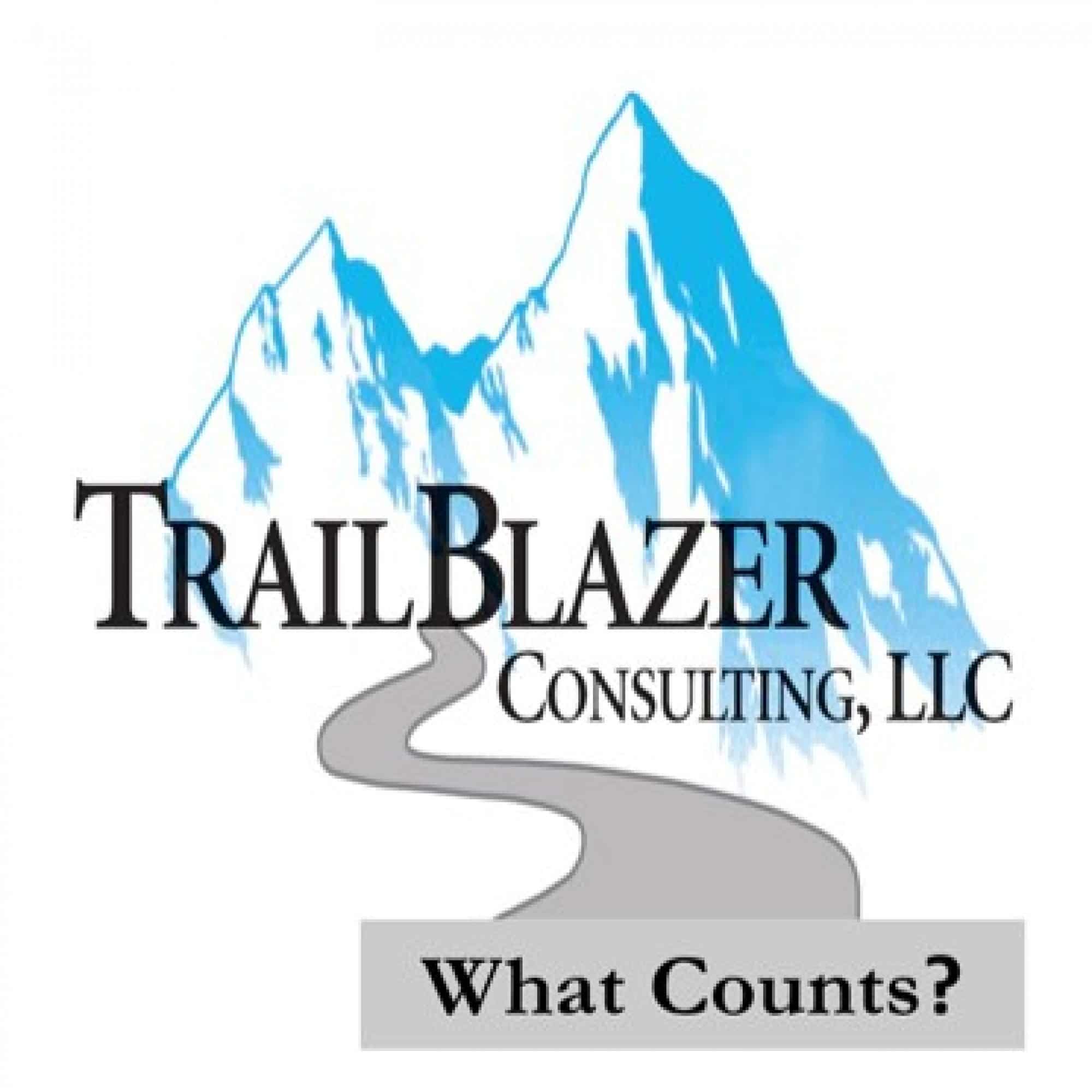[00:00:01] Speaker A: Hello, thank you for joining us. Welcome to what Counts, where we dive deep in the world of information governance. Here we highlight proven solutions developed through our experience working with companies across various industries and we talk about how you can apply these solutions to your company.
Whether you're interested in information governance, have a need, or just curious to hear about information management challenges like email management, retention management or, or asset data management, this podcast is for you. This is Lee. In this episode, Mora and I will talk about what professional support in particular is necessary for your business.
Maura, I used the word necessary there, right? There's a lot of support that could be used for your business, but what's necessary?
Yeah. Do you want to cover that or you want me to just steal the show and answer that question right away?
[00:00:52] Speaker B: Why don't you start and I'll, I'll see what, I'll see if I agree.
[00:00:55] Speaker A: Yes. Well, I'll give you a hint. Like I think two episodes ago we already announced these two, let's put it that way. We said a lawyer and an accountant. These are absolutely two people that you have to have. Whether if you try to do it yourself, yeah, it's possible. But there's always that shared responsibility that that would be nice to have. So I do recommend having a lawyer and an accountant helping you out. Why?
Why do you need a lawyer from day one? Well, it's the business structure that we talked about, that's one thing.
They're going to help you navigate through that and then write up all of your documents that we again already talked about.
Contracts and agreements, I mean, whether you're a service, right. Whether you're a service or a product company, you're going to have a contract that needs to be reviewed. There's non disclosure agreements just to talk to another organization. You want to get an NDA in place and that's key to have somebody review that you can get good at it. But I would say up front, you know, you want somebody to look at the indemnification clauses, you want people to look and make sure that it's a mutual non disclosure.
So it's really key to have a lawyer look at it up front.
[00:02:18] Speaker B: I agree.
And when we, we started out and we had, I think we did hire an accountant briefly, not our current accountant, to help us figure out the chart of accounts. What's an expense, what's an asset, what's a liability? How do we account for, literally account for the money going in, the money going out.
Once that's set up, that was pretty straightforward for us. Until we got to taxes, tax strategy.
And we'll talk about, you can talk about taxes later if you want.
But on the legal side, I think I mentioned, we talked about in an earlier episode, you know, we had been doing the business of our business for a long time. We had just been doing it for other companies.
And at those companies we were more and less involved in the creation of the contracts that we signed.
In the first company where you and I worked together, big company, a lot of federal government contracting, we didn't have a whole lot of say on what happened with the contracts. And we had a huge team of contract specialists and lawyers that were part of the company that protected us from things. The second company where we work together, still a big company, much bigger than we are, not as big a team of contract specialists and lawyers. And we had to learn some things on our own.
For instance, what indemnification means and what is a warrant or a liability or limitation of liability and what are we signing up for?
That's kind of the rule of thumb that I took away is what does this contract make me do in the event something goes wrong.
So then we came to our own company and we had, and you can find a lot of example contracts on the Internet and you can look at them. But we actually did hire our lawyer. We hired a part time general counsel. She works for us off and on as needed because we're too small to need a full time lawyer, but we needed one that we could talk to who was available when we needed her and also who got to know our business.
And she helped us write a standard set of terms and conditions for our client engagements.
And we went through several drafts.
And then a couple of years into our business, we ran into a situation that we had not considered and our terms and conditions didn't cover it.
[00:04:49] Speaker A: Do you remember that termination, getting out.
[00:04:52] Speaker B: Of the termination on our side, deciding to walk away?
[00:04:57] Speaker A: Yes.
A key factor in including in any of your terms and conditions is how do you get out of the contract. You may not want to because it's business, it's work for you. Right? You're excited, you got your first piece of work or whatever the case may be.
But you do need to consider the end and getting out because it's very important. I'm not going to go into detail.
[00:05:18] Speaker B: So what we had before this, this lesson, this lesson learning environment, this lesson, character building activity that we ran into, or character builder situation we ran into, but before that we had thought about in our terms how we wanted the contract to protect Us from a client wanting to leave early. Right.
We said we need so many days notice in writing and they had to pay us prorated for the work we'd already done.
And so we were worried about somebody stopping us.
What we didn't worry about until we hit this project that didn't go as planned was what if we don't want to do this anymore? What if we can't work with this client anymore? What if they have changed the understanding that we had and our contract didn't give us an out, we didn't have any way to terminate that contract. We just had to keep going. And we, we did and we finished it and we lost a ton of money on it because we had to give, we had to give a lot of free labor to this client that they switched internal people on us and they changed the rules.
And that taught us a couple of things. One, our standard terms and conditions include a we can quit clause. And what are the reasons as well as how does a client go about ending the contract early and what do. What's, what's our protection in that situation.
But it also taught us a lot about how to improve our assumptions and the boundaries and the guidelines that we put into our scope of work.
And when things change, when the client wants to change something or when we think there's a need for a change, we have a process for it.
We had those things in our original terms, but we definitely made them stronger after that project because the key thing there was how many site visits were we going to do?
And when we set the agreement, the client had said, we have 15 sites we want you to go to. And we said, great, we'll go to the sites you say when they switched out who the contact was on their side, that 15 became 157.
And obviously that's a huge increase.
[00:07:47] Speaker A: And it wasn't scope creep, though. Let's get, let's be clear. It wasn't scope creep. It was those 15 sites had just happened to have these other locations associated.
[00:07:58] Speaker B: With them, satellites and things.
But it wasn't the spirit of what we had agreed with the original contact.
And they knew it, the substitute contact knew it, and it didn't matter. We had, we didn't have any recourse. We had to do it. And I spent a lot of time that year on the road doing that.
So a relationship with an attorney and a real. Really can help you talk through these situations. And that hadn't occurred to us or frankly to our attorney. But now we've recently we were looking at something a partnership agreement we wanted to enter into. And we had our attorney take a look at it. And she was like, wait, I have some baseline questions for you before we even get into the language that's in this agreement.
So we've all learned and we live through it and our. Our contracts are better for it.
[00:08:55] Speaker A: Absolutely. The other piece that's just kind of a tangent to that is intellectual property protection.
Right. You never know, working as consultants when an idea pops up that you. That could be something that you could use as another service offering. And to be able to protect yourself again with that is also important that a lawyer will help you out with.
[00:09:20] Speaker B: Yes. Because that's. Our business is learning new things and helping and helping new clients with the things we've learned.
[00:09:29] Speaker A: Yeah.
[00:09:29] Speaker B: So have to be able to do that. I want to mention one more professional that depending on if you have a lot of employees can be really helpful, which is a professional employment organization.
It's kind of a companion to you and it. And. And there's some factors that make it worthwhile. So what a PEO does for you is for a small business is they help you do all the payroll taxes and all the filings. They do all of the.
They actually will, you know, write your paychecks and make sure that that all can happen. But you can do that yourself in it if you want. You can do that yourself. And we'll talk about how in a different episode. But the PEO as a professional relationship, one of the biggest benefits is if you are offering benefits to your employees like health insurance, or if you want to offer an fsa, a flexible savings account or a health savings account.
As a small business just starting out, you don't have a lot of clout.
And insurance companies are not going to give you the best deal to let you start a group insurance policy or to sign up for those different type of benefits. But a professional employment organization has the clout of kind of the conglomerate, the aggregate of all of their employees. And so they can help you negotiate a much better deal. And. And that was a huge plus to us in our early years when we had.
We were bringing on a lot of employees at once and signing up for, first of all, negotiating for those benefits, but second, signing up for all the states withholdings and tax laws for employment taxes. That's a lot of work and keeping track of it. That's a place that's risky. If you miss something, then you've put yourself in big trouble.
We had employees in multiple states because of the nature of Our business, we're remote. We work with multiple clients.
We had a lot of complications around having employees. And the PEO was a huge help. If you're a small business, a storefront, you're in one place, you've got just a couple of employees, you might not need it, but it's something to consider along with the absolutely necessary accountant and lawyer.
[00:11:52] Speaker A: Yes, the PEO is key because you can tailor it to your needs. Right. It could become your complete outsourced HR department handling all of those functions, or you can have it to be just insurance, if that's, if that's what you need. So it could do recruiting and so forth and so on. All the different pieces are all negotiable.
That's key.
The accountant, just to cover that a little bit.
Tax strategies, although beginning, we didn't really get those strategies from our accountant. So that was a learning process as well.
But the cash flow management, the financial planning, the budgeting, you get that all from your accountant.
At least you get the ideas. You may know how to balance your own checkbook, but running a business is a little different than that.
So.
[00:12:41] Speaker B: And the tax piece is important because as a business owner, you're responsible for quarterly tax payments, estimated tax payments. That's not like being an employee of a company where they withhold your taxes. And an accountant can really help you decide how much you have to pay into taxes to your state, to the federal government in the first quarter when you haven't made all the money for the year and you may not know how much money you're going to make. So how do you, how do you protect yourself there? Because if you get to the end of the year and you owe a lot of, but you haven't paid in on the quarterlies, then there can be fines.
And so the, the a tax, a good accountant can help protect you against how you structure your payments and how you are able to support how much you paid in early versus how much you're paying. You know, when you put your tax returns in in April, and I will.
[00:13:39] Speaker A: Say there is some truth in banks won't look at you for giving you a loan if your business is under three years old.
And it's because you don't know your tax burden yet, you really don't understand everything that needs to and what those installment payments are for. It takes you really three years to get it right and to get it, to get it calculated right, to get the understanding of what's coming in, when it's coming in, and how you should pay. And so forth.
[00:14:11] Speaker B: And what what has an impact in terms of what kind of expenses have expenses have an impact whether you're making big capital purchases that are treated differently.
There's a lot of nuance to it and it's very different from being an individual employee who gets a W2 from your employer.
So highly recommend accountant and lawyer and consider a peo.
[00:14:37] Speaker A: Yeah, they're investments in your business.
They're not just expenses. I mean, yes, you can expense them, but they're investments.
[00:14:44] Speaker B: You do have to pay them also.
[00:14:47] Speaker A: But it's key to long term success.
If you have any questions, if you have any questions, please send us an
[email protected] or look us up on the web at www.trailblazer.us.com. thank you for listening and please tune into our next episode.
Also, if you like this episode, please be a champion and share it with people in your social media network. As always, we appreciate you the listeners. Special thanks goes to Jason Blake who created our music.
[00:15:16] Speaker B: Thanks everyone.


